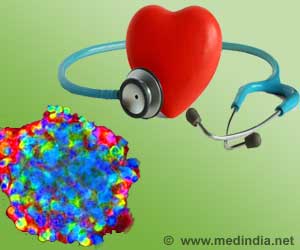Diabetes is associated with sudden cardiac death, although the exact direct relationship is unclear.

It is unfortunate that no single test is available to identify individuals at increased risk of SCD. This is because the exact cause of SCD is multifactorial, i.e. depends on a number of factors. Uncontrolled diabetes and its complications is just one such factor. Diabetes has been associated with sudden cardiac death, although the exact direct relationship is unclear.
Diabetes is a known risk factor for common preventable conditions associated with SCD. These include diseases of the blood supply of the heart (coronary artery disease (CAD), heart attack) and those leading to heart failure. It is possible that diabetes affects the heart due to its action on big as well as smaller blood vessels. Diabetes affects autonomic nerves that supply to the heart, which in turn could affect the rate and rhythm of the heart, resulting in sudden cardiac death.
Bringing diabetes under control is of great importance. This can be achieved with healthy life style modifications with or without supplementary medications. A number of oral drugs and easy-to-use insulin preparations are available. It is also vital to note that several studies found detrimental effects of over correction of diabetes. Intensive blood glucose correction may reduce the risk of diabetes complications, but it also increases the incidence of hypoglycemia (dangerously low blood sugar).
Factors such as smoking, high cholesterol levels and obesity may tamper with the healthy blood circulation in individuals building up clots (thrombus) and plaques that are dangerous. Elderly women are at greater risk of plaque rupture. Cigarette smokers are twice to thrice at risk of developing plaques when compared to non-smokers. Tobacco cessation is thus protective to the heart.
Genetic factors are also known to add to the risk factor for SCD. A history of SCD in the family, especially in parents, places an individual at a high risk of the adverse event. Tests to identify the susceptible are yet to be available.
The sudden and unpredictable nature of SCD and our current state of helplessness with respect to better diagnosis leaves us clinging to the age old dictum ‘prevention is better than cure’. Slowing the progression or development of heart diseases, achieving a healthy control of diabetes and timely management of hypertension and high cholesterol levels are known to lessen the risk of SCD. Sudden Cardiac Death prevention strategies for the general population are the same as those for patients with diabetes.
Reference: Diabetes and Sudden Cardiac Death; Jennifer D. Smith et al; US Pharmacist 2013
Source-Medindia
 MEDINDIA
MEDINDIA




 Email
Email









